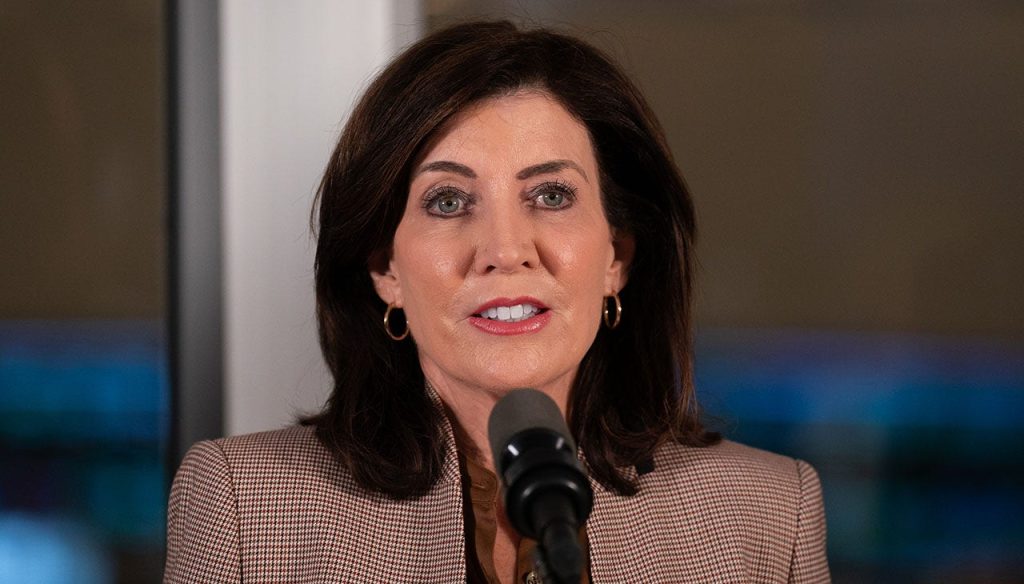New York Governor Kathy Hochul made headlines on Thursday when she appeared to refer to Donald Trump supporters as “clowns” during a media appearance ahead of the former president’s rally in the Bronx. She stated that New York would never support Trump for president, emphasizing that the state knows him better than anyone and understands that he is only looking out for himself. In response, the Trump campaign criticized Hochul, claiming that she was upset that Trump was drawing larger crowds in the state than she could. The campaign also suggested that Americans, including Hispanics and Blacks, were waking up to the fact that the Democratic Party has been using them for votes.
Trump, who has been in New York for his hush money trial, has expressed confidence in his chances of winning the state in November despite it not voting Republican since 1984. A recent poll showed President Biden with a nine-point lead over Trump in the state, which is significantly smaller than Biden’s victory margin in 2020. Hochul’s comments have also drawn comparisons to Hillary Clinton’s “basket of deplorables” remarks from 2016, in which she referred to some of Trump’s supporters in a negative light. Hochul’s office did not respond to requests for comment on the matter.
Hochul’s comments about Trump and his supporters have stirred controversy, with some criticizing her for denigrating a significant portion of the population. The Trump campaign’s response highlighted the tension between Democrats and Republicans in New York, as well as the changing political landscape in the state. The fact that Trump was able to draw large crowds in New York City suggests that his influence in the state remains strong, despite recent setbacks and legal challenges.
As an incumbent governor, Hochul’s comments carry weight and significance, especially in a state as politically influential as New York. Her refusal to support Trump’s candidacy and her strong endorsement of Biden signal her allegiance to the Democratic party and its values. The ongoing rivalry between Democrats and Republicans in the state creates a contentious atmosphere, with both sides vying for support and influence among voters.
Overall, Hochul’s remarks reflect the deeply polarized political climate in the United States, where politicians often resort to divisive language to rally their base and discredit their opponents. The ongoing feud between Trump and Hochul, as well as the broader conflict between Democrats and Republicans, underscores the challenges of governance in an era of intense partisanship and political polarization. The upcoming election in New York will likely be closely watched as a barometer of public sentiment and political trends in the state and the nation as a whole.


